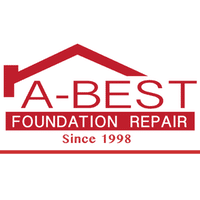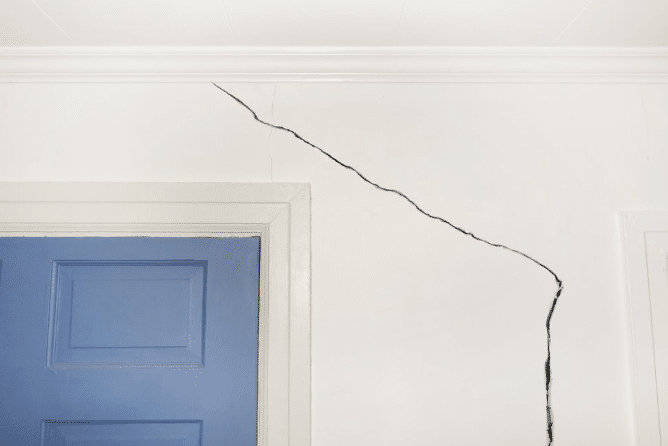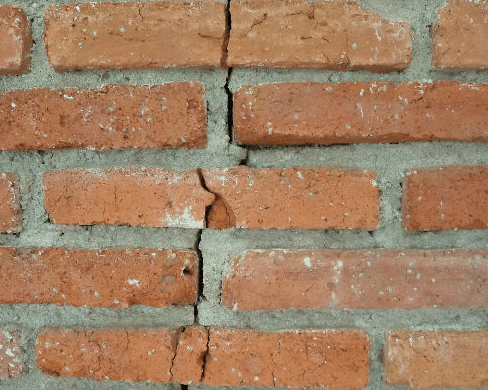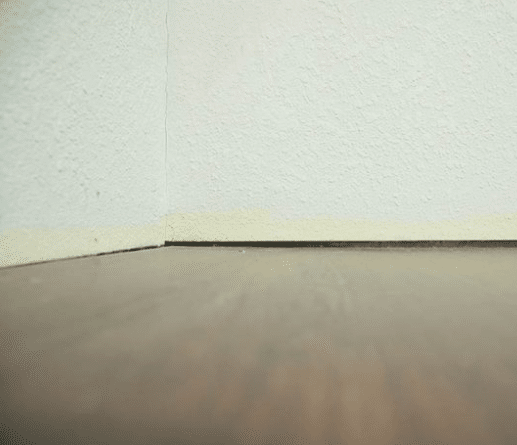“Is it safe to live in a house with foundation problems?”
To the majority of people, the answer here is pretty obvious, but for the uninitiated, we’d like to help you out:
NO!
The first signs of foundation problems should be a red flag for you to address them as soon as possible. Without a sturdy, safe foundation, you put yourself and others living in your home at risk for costly repairs, damages, and possibly even a full-on collapse! Worried that you could possibly be at risk for these catastrophic results? We’re here to help.
Signs of Foundation Problems
Like us, if you have a property in Houston, you may have already been on the wrong end of foundation problems.
Anything from fixtures not fitting properly, cracked or crumbling walls, sagging floors and warped ceilings can all be signs of foundation issues that need to be addressed immediately! Many foundation problems can be covered by insurance, so why waste your time hoping that a small issue doesn’t decay beyond repair? While these issues can start as something simple and small, it’s only a matter of time until they start affecting your entire home.
What are some of the most common signs of foundation problems?
- Cracks in the foundation itself, walls, and flooring
- Foundations settling or sinking over time
- Foundation upheaval
- Sticky doorways that won’t open or close properly
- Gaps around window frames and doors
- Sagging, uneven, or sloping floors
- Counters and cabinets separating from the wall
Causes of Foundation Cracks
While it would be nice to have a concrete (no pun intended) idea as to what is the root cause of foundation cracks, the truth is it varies from situation to situation. If you’re not an expert, it can be nearly impossible to tell what is really at the root of the problem. In most cases though, there are two particular factors that come into play – and you don’t need to be an engineer to figure out what they are.
Settling Soil – Soil settling is one of the most common reasons that you’ll encounter problems with your foundation. This was likely the fault of the original builder, who may have used loose soil to level out the ground before pouring the foundation.
Soil Moisture – Varying degrees of soil moisture also can play a big role in foundation issues. Basically, soil expands when it’s wet and shrinks when it dries, which ultimately will lead to cracks. This is mainly due to the differences in pressure on the materials that make up your foundation base.
Cracks in Foundations and When to Worry
Walking around your home, you may have already noticed some cracks in your foundation. It’s important to remember that while some of these cracks are indeed very serious, some can be insignificant.
The seriousness of the crack depends on a number of things, including the location, size, number of cracks as well as if there are any accompanying structural issues with the home. If you have a pier and beam foundation layout, there are additional considerations as well.
Foundation Problem Pictures
Generally, the older a home gets, the more likely it is that you’ll start noticing some cracks in the foundation. In addition to age, cracks can start appearing for any number of reasons, including:
-
- Tree roots
-
- Settlement
-
- Expansive soil
-
- Plumbing leaks
- Engineering
-
- Lack of reinforcement
If it seems that the crack is somewhat localized in the foundation without a bunch of additional issues presenting themselves like the ones mentioned above, there’s probably no huge cause for concern. On the other hand, if you’re noticing multiple cracks or a large concentration of cracks in the same area, as well as one or more of the common signs showing up throughout the home, it’s probably time to take some steps towards repairing the problem.
How to Repair Your Foundation (not on your own.)
First and foremost, if you’ve made the decision to tackle these issues with repair, it’s probably best to call in the experts. Errors in judgment or mistakes in repair can lead to even bigger issues down the line (which means more money spent). However, for those of us that are self-proclaimed DIY-ers, read on.
It’s important to have an idea of what type of crack you’re going to be repairing.
Hairline cracks tend to be smaller and spider-web like in their look. Hairline cracks can usually be resolved by using some sort of vinyl concrete compound.
Larger cracks won’t be able to be patched in the same manner. In this case, you’ll need to switch materials to a polyurethane, silicone, or latex concrete caulk. Foam backer tools will be necessary for cracks that are larger than a half-inch deep – these will support the patchwork.
In most cases, many foundation problems arise from issues with the soil underneath the foundation shifting. This is the most common cause of foundation cracks. Settling soil causes cracks that can be thin or wide, depending on how much the soil itself has moved. You can restore the elevation to its original height through foundation leveling, which may resolve most foundational problems.
In addition to the above, two of the most common methods to repair foundations are piering and slabjacking.
Piering is ideal for larger problems, such as the foundation of a commercial building or house. Steel posts are driven through the soil underneath the foundation and hydraulic jacks are used to raise or stabilize the concrete slabs.
Slabjacking is used for smaller slabs such as driveways, sidewalks, or decks. Grout or foam is pumped beneath the slab to lift the slab back to its original elevation.
Average Cost of Foundation Repair
The cost of foundation repair varies by your location, as different geographical areas have different soil quality that requires different levels of repair. Foundation repair in Houston, TX is going to differ even from Dallas.
Cost also depends on a number of different factors, including:
-
- How accessible the damaged portion is
- The initial cause of failure
- Method of repair
If the damage is caused by accidental flooding from household plumbing, home insurance may cover the cost of repair. Costs can vary greatly, but they typically run anywhere from $15,600 to $24,500. Costs at first glance may seem like they’re pretty high (and they are, there’s no denying that), but considering the alternative is to tear the home down and start from scratch, it’s definitely the lesser of two evils.
Aside from paying immediate dividends as far as safety and security is concerned, you’ll also increase the future value of your home if you decide to sell down the line.
How to Prevent Problems
Obviously, the best way to prevent foundation problems is to ensure the house is built properly in the first place. Of course, this is not always possible, but if you’re having a home built, be sure to oversee the process carefully to prevent future issues.
We know not everyone has the benefit (or budget) to build their home from the ground up. Luckily, there’s plenty of other preventive measures you can take to make sure your foundation lasts as long as possible:
- Keep Gutters Clean – You’re probably wondering how on earth this could possibly help your foundation, right? Clogged gutters lead to water overflow to the ground below. Seeping directly into, you guessed it, your foundation
- Install Drains – If your yard is prone to flooding or puddling during storms, it’s a smart idea to install some sort of drainage system. Underground drains can carry the pooled water to the edge of your property.
- Keep Rooted Plants Away from Your House – It’s not just water you’ll need to worry about! Avoid planting trees and other plants too close to your home. As roots expand, they can make their way into your foundation.
- Repair Cracks as Soon as Possible – This one seems obvious but bears repeating. At the first sign of a cracked foundation, you should take the necessary steps to repair.
How We Can Help
We’ve got 17+ years of experience repairing foundations in Houston and the surrounding areas. We’ve got an A+ rating with the Better Business Bureau, and we’re validated by HomeAdvisor. We’ve fixed and surveyed thousands of jobs over the years, and we’re confident we can take care of yours as well.
If you are experiencing foundational issues, feel you are in need of repair, or simply want to prevent future problems, give us a call today for a free estimate. 713-714-5656






